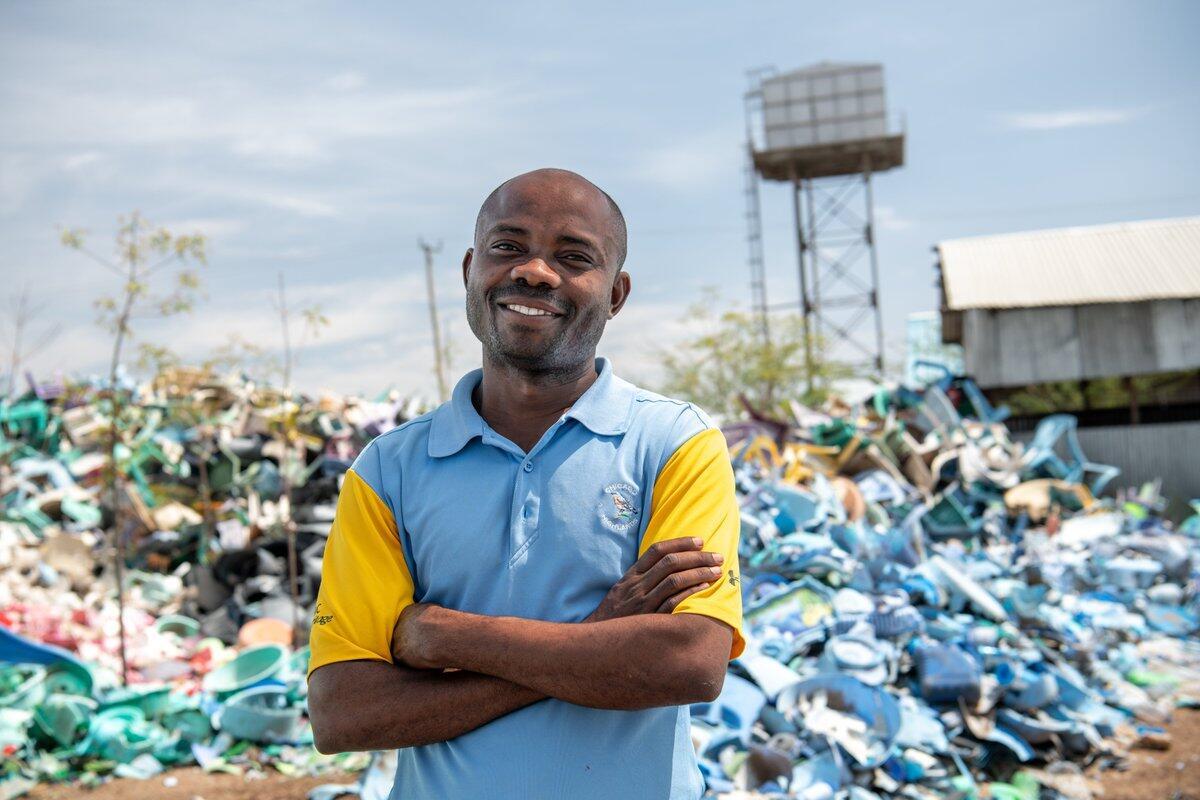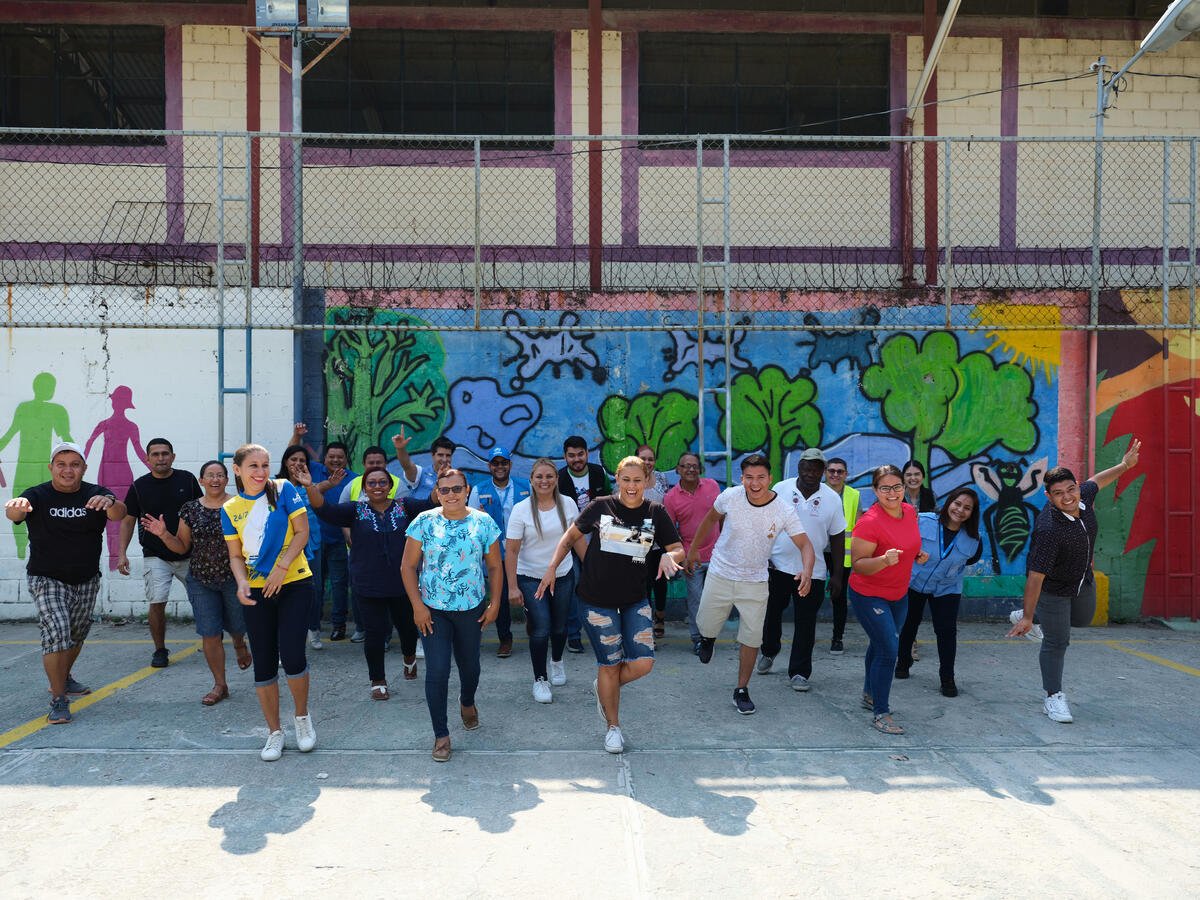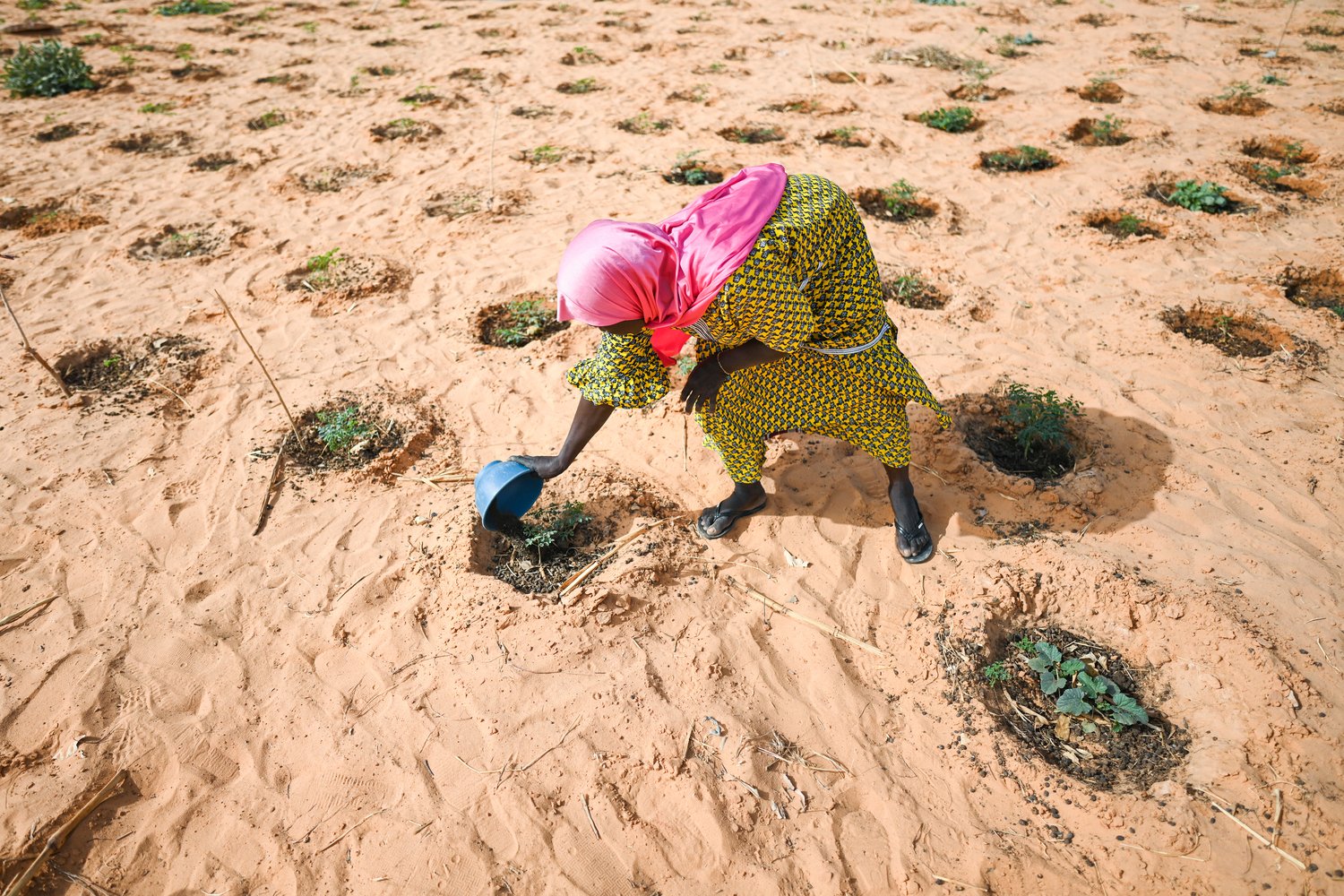Refugees and displaced people from climate frontlines call for greater inclusion at COP28
Refugees and displaced people from climate frontlines call for greater inclusion at COP28

To combat desertification, internally displaced women and locals have planted 2,000 trees in the Bogo Internally Displaced Persons site in the Far North region of Cameroon.
At this year’s UN climate change conference in Dubai – COP28 – forcibly displaced climate activists have been speaking up on behalf of millions of other refugees and internally displaced people who are being disproportionately impacted by our changing climate.
Nearly 60 per cent of the world’s displaced are living in countries that are the most vulnerable to climate change. After fleeing war and persecution, they are being confronted with droughts, floods and extreme temperatures. Despite this double burden and lived experience, they have struggled to make their voices heard at annual UN climate change conferences.
Nhial Deng, a South Sudanese refugee, youth advocate and community activist, is among those trying to change this at COP28. “The climate crisis is a human crisis,” he said. “We need to listen to the voices of communities who are on the frontline; we need to see them as experts.”

Refugee and youth advocate Nhial Deng (left ) with UNHCR Goodwill Ambassador Emi Mahomoud (second left), artist and OCHA supporter Oumy Gueye (OMG), and UNHCR Advocacy Officer Raefah Makki at COP28.
Deng was speaking at one of several sessions in recent days that have put a spotlight on climate action and solutions led by forcibly displaced people. Speakers from South Sudan, Somalia, Yemen and the Democratic Republic of the Congo have been sharing their stories of fleeing first from conflict and then from climate disasters, as well as speaking about the work they are doing in their communities to restore the environment and adapt to the changing climate.
“Now more than ever, decision makers at COP need to understand the perspectives of such communities on the climate frontlines, and to hear their calls to action,” said Andrew Harper, the UN Refugee Agency’s Special Advisor for Climate Action.
“Millions of refugees live on increasingly uninhabitable land, exposed to some of the most hazardous climate impacts. Decision makers can learn from their dreams, aspirations and solutions.”
Eman Al-Hamali from Yemen leads a group of 10 women, all of them internally displaced, who run a solar microgrid that delivers affordable, clean energy to households in Abs District in Yemen’s northwest Hajjah governorate. It is an area heavily impacted by both conflict and climate extremes, where livelihoods dependant on agriculture have been hard hit by increasingly scarce rains.
The success of the project Eman leads has inspired 12 additional solar plants benefiting over 44,000 people, but challenges remain. “We lack funding to meet the growing needs of the community for renewable energy, in addition to lacking trained personnel in the field of solar energy who are aware of climate mitigation strategies,” she told delegates.

Eman Al Hamali stands next to the solar microgrid she manages with 10 other internally displaced women in Abs District in Yemen.
UN High Commissioner for Refugees Filippo Grandi added his voice to calls for greater inclusion of forcibly displaced people in both discussions at COP28 and in national climate action plans. “The inclusion of those most affected is vital to our discussions and responses. The experiences and solutions of displaced communities deserve a significant place in the global climate discussion.”
Poet, former refugee, and UNHCR Goodwill Ambassador Emi Mahmoud has been advocating for greater inclusion of refugees and displaced people in responses to the climate crisis since she attended her first COP in Glasgow in 2021.
At an event at COP28 on Sunday, she performed her poem “The Song of the Earth” – a lament for our ailing planet that also carries a hopeful message about the possibility for a more sustainable future.

UNHCR Goodwill Ambassador Emi Mahomoud reads her poem “The Song of the Earth” at COP28.
She drew inspiration for her participation at COP from a recent visit to Minawao refugee camp in the Far North region of Cameroon, where she met Nigerian refugees taking climate action, including planting thousands of trees to restore the environment in and around the camp and to combat desertification.
“I got to see the real work that everyone is doing and the innovation that happens in real time on the ground,” she said. “Refugees are not just on the frontlines of climate change, they’re also at the forefront of combating climate change.”
"The climate crisis is a human crisis."










